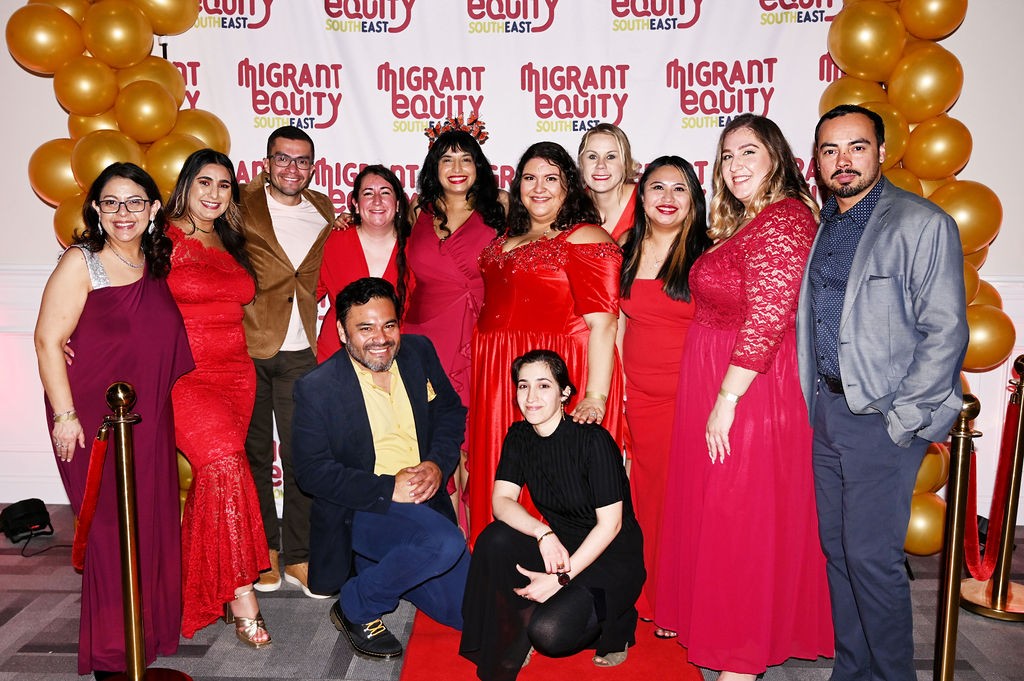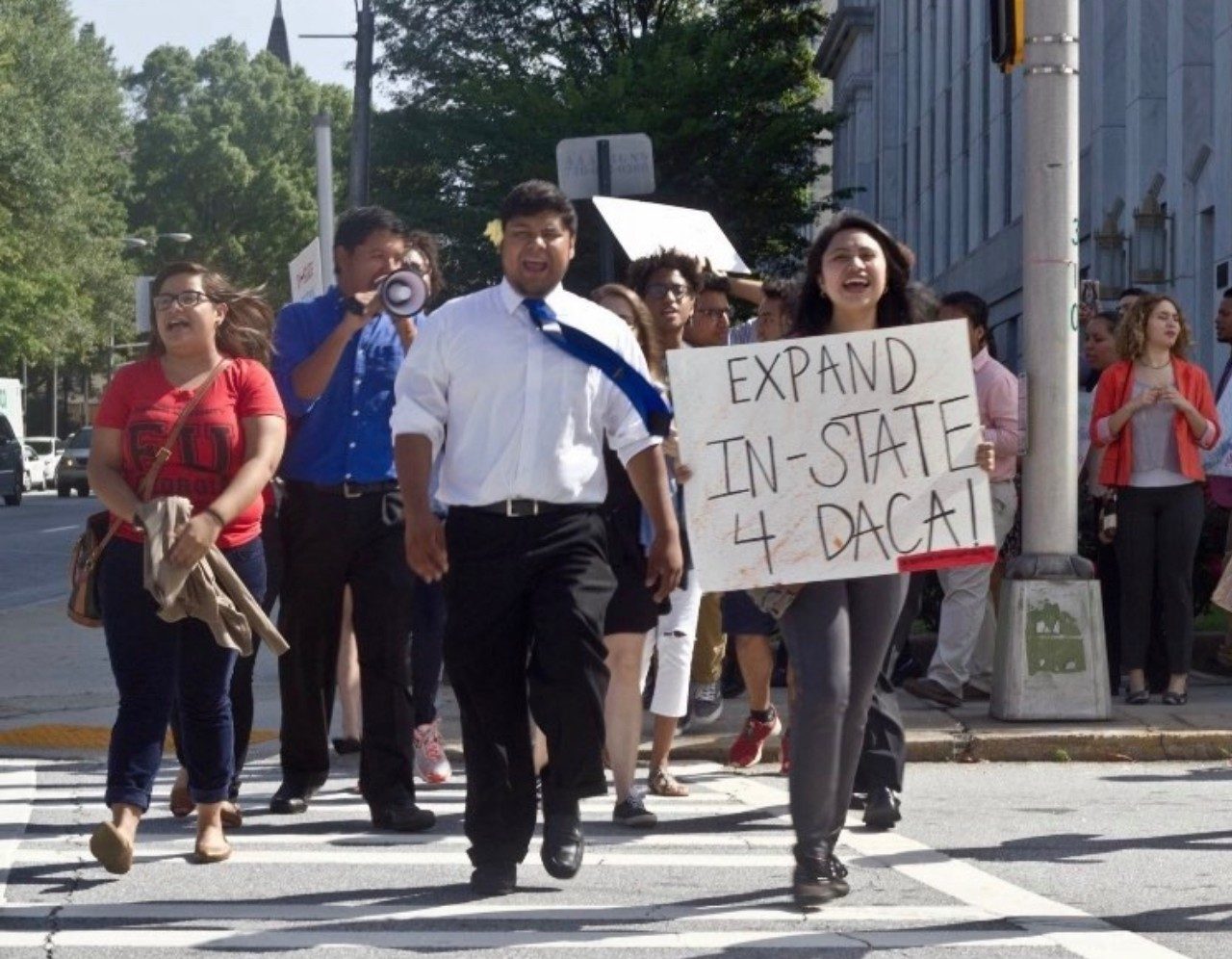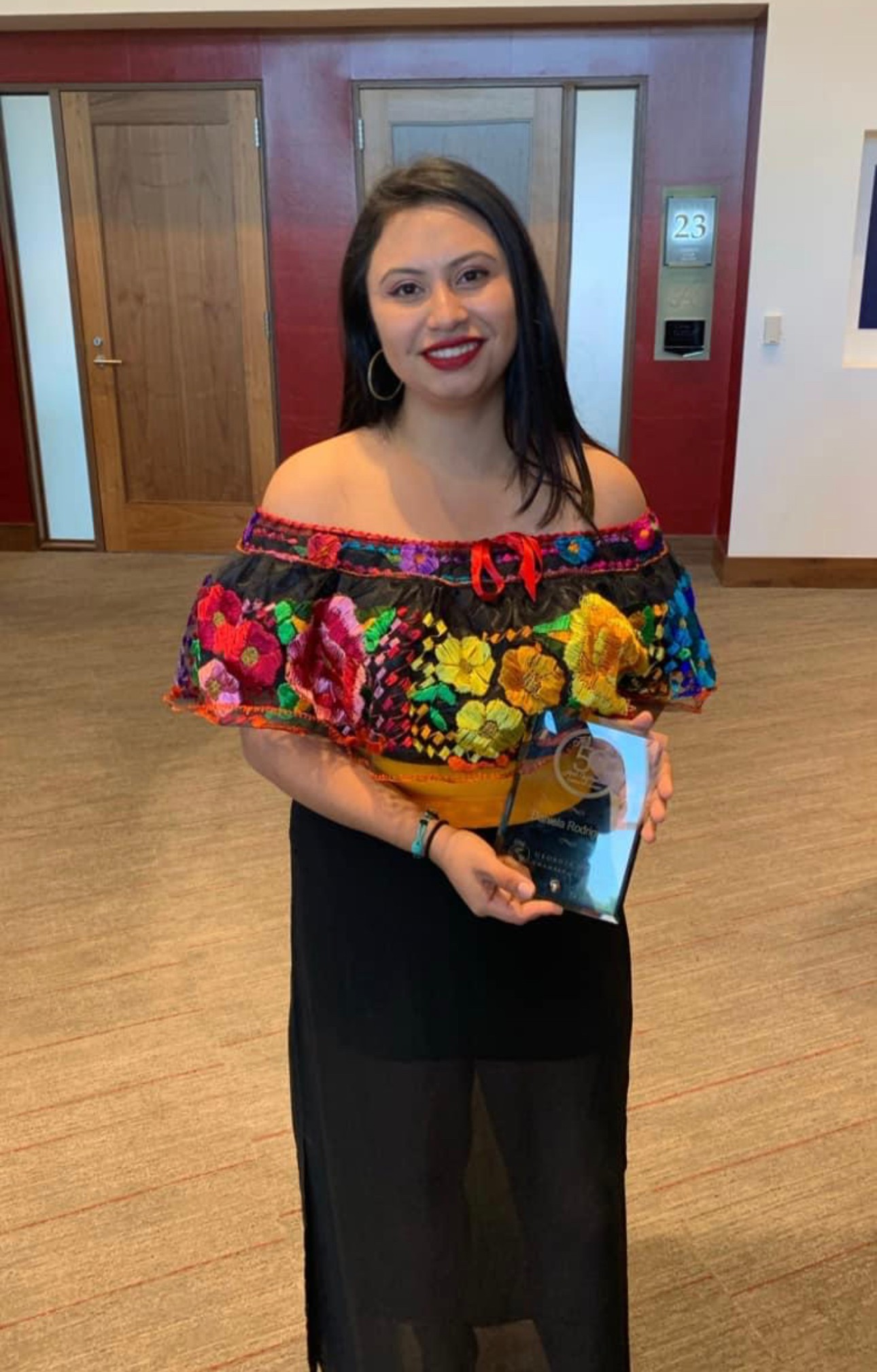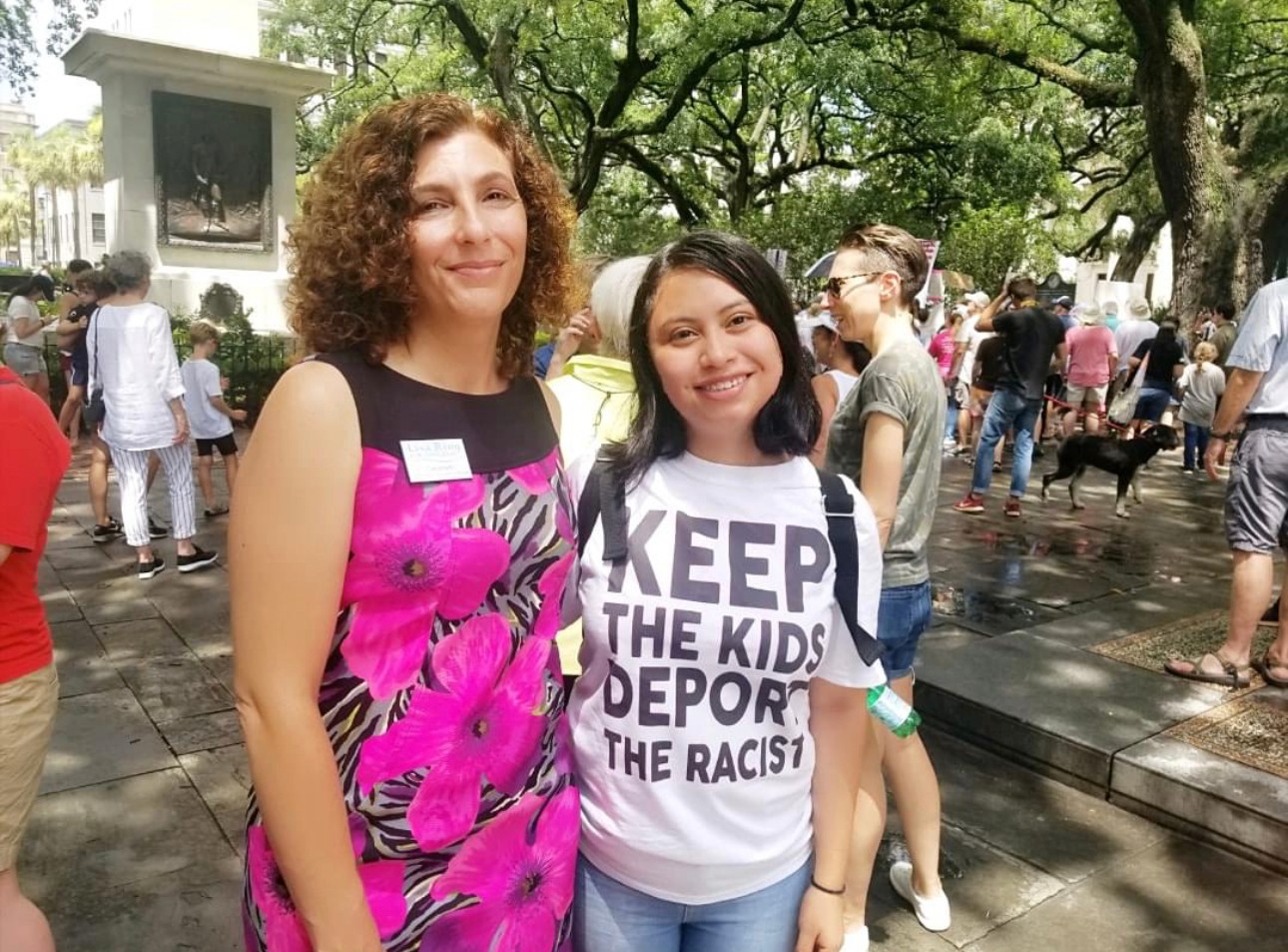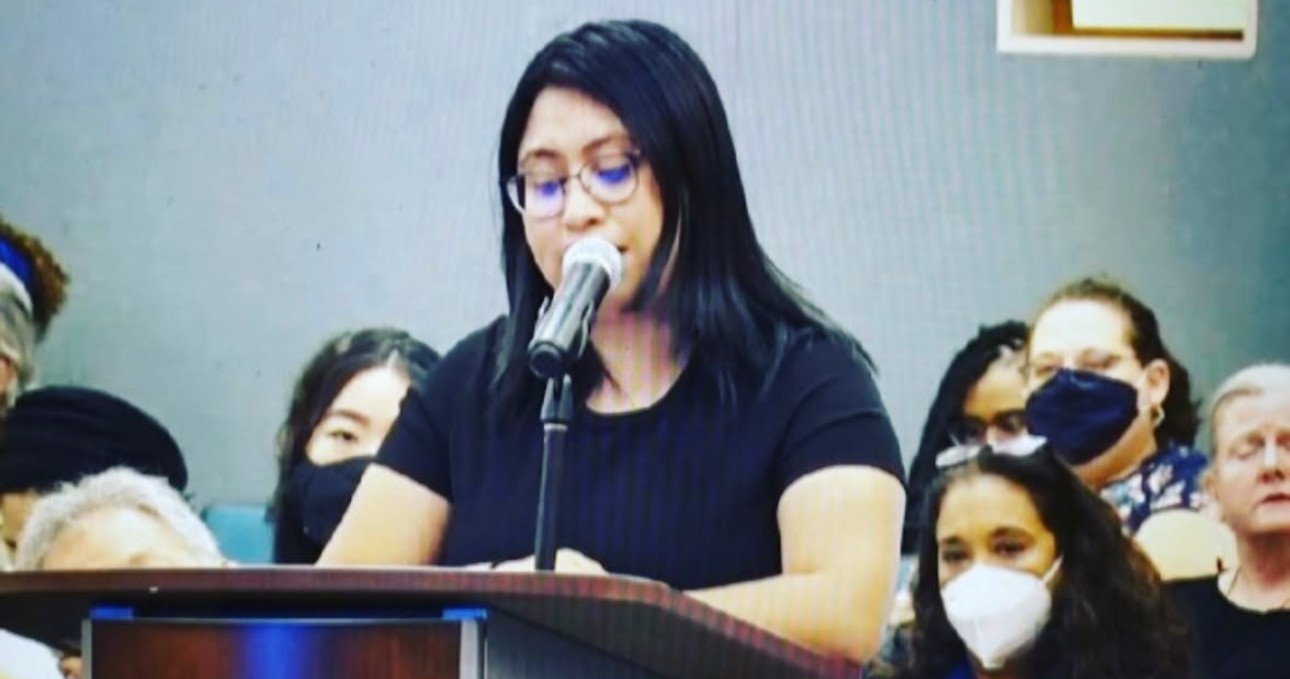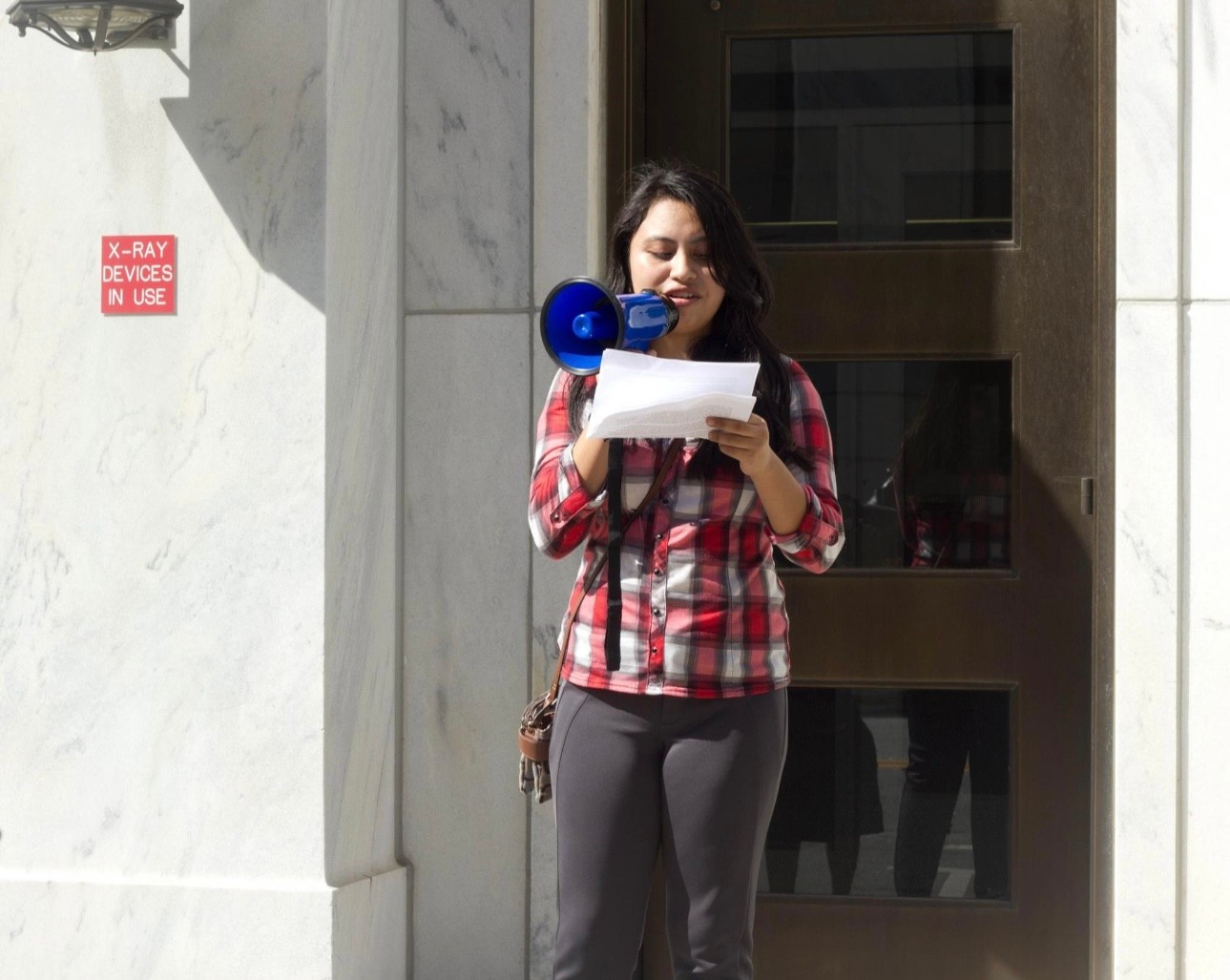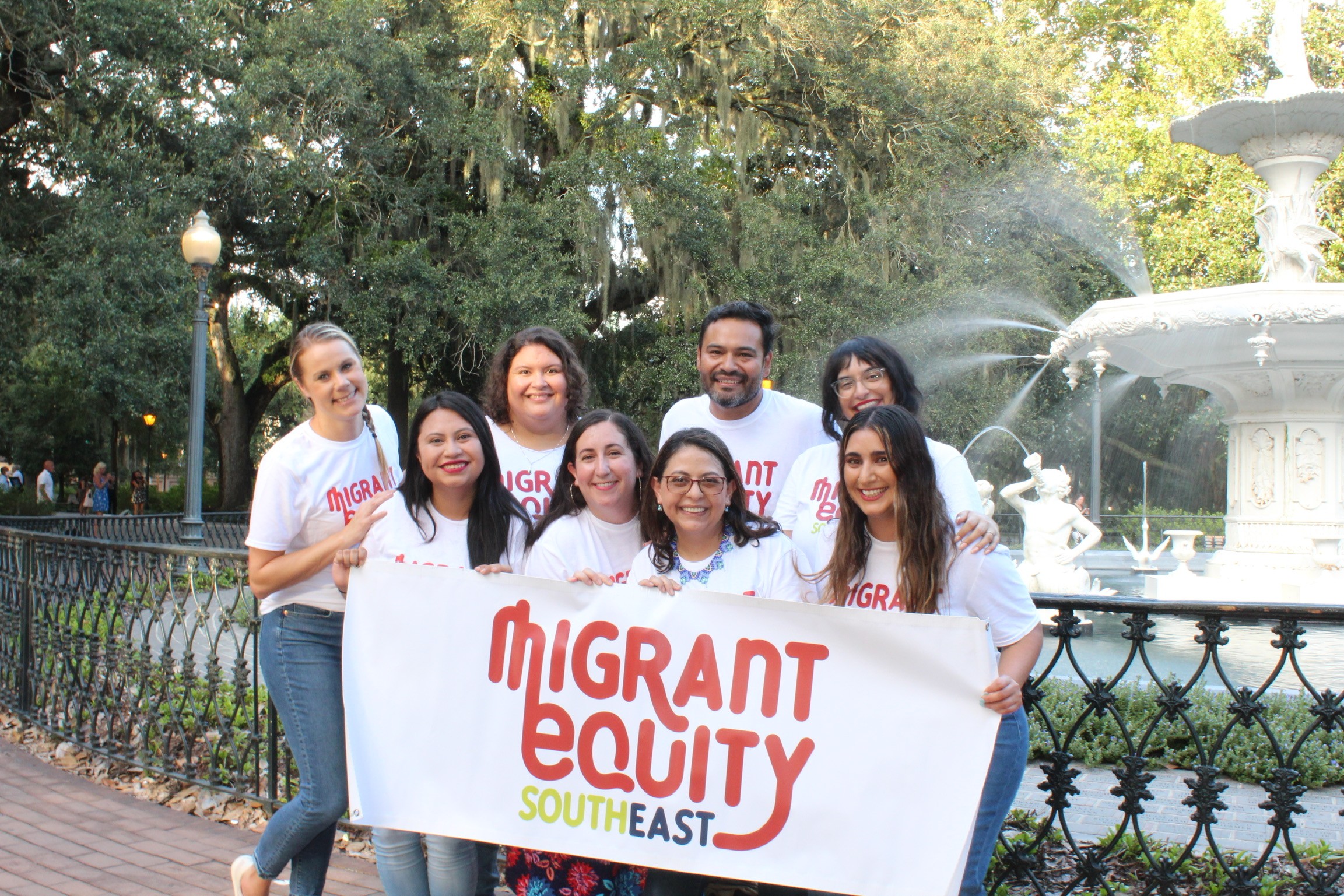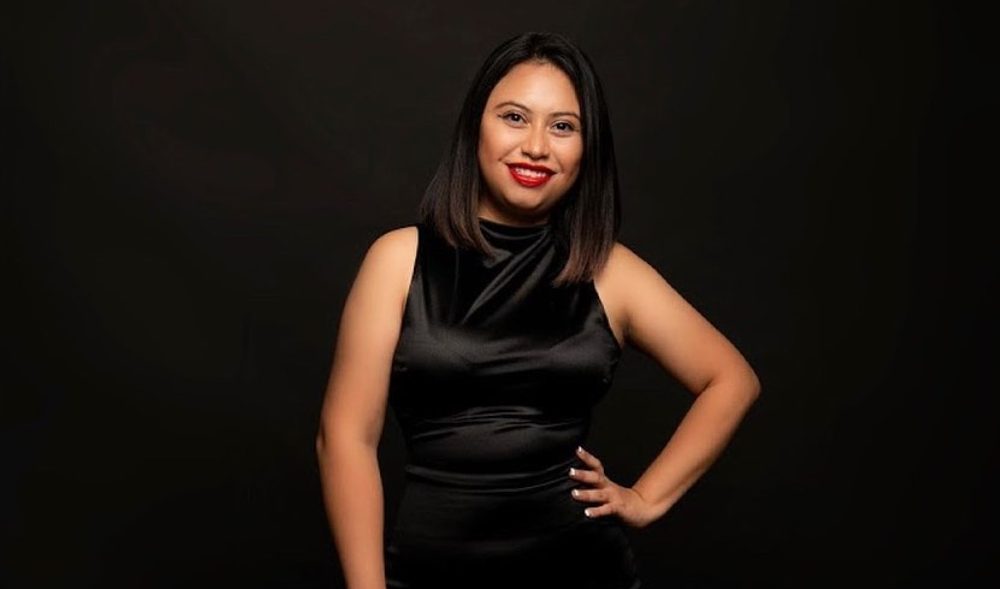

Today we’d like to introduce you to Daniela Rodriguez.
Daniela, we appreciate you taking the time to share your story with us today. Where does your story begin?
I am an immigrant and I am 28 years old. I came to the U.S when I was 13 years old with my mother. I was born in Chiapas, Mexico. It’s a border state – it borders Guatemala in southern Mexico. One day in 2007, my older sister who had previously emigrated to the U.S. in the early 2000s, decided that my mom and I needed to join her in the U.S. for a better life and better opportunities. I was strongly against it. I loved being in Mexico, I loved being with family, I loved my school, my community and the food. But I was a child and I had no choice. During a cold winter in 2007, my mother and I crossed the desert and made it to the U.S. As a child, I never understood how dangerous that was. One girl and one woman alone. Too many bad things could have happened. I could have been separated from my mom – I could have been raped…
Thankfully, we made it to the U.S. Through highs and lows, we moved to Brunswick, Georgia – our new home. I won’t get much into detail, but in February 2008, I was enrolled into middle school. I did not speak English and it was very tough. Learning English was a challenge for me. 7th grade is hard enough, but imagine living in rural GA surrounded by teenagers who were not familiar with diversity – yes that was me. Although I did not speak English, I was a gifted student and I managed to excel in math and science.
Later on, I enrolled in High School and I was blessed to have an amazing ESL teacher who cared a lot about my success. She noticed that I was a gifted student so she signed me up for honors and AP classes. I was told, “In America, if you work hard for something, it pays off” and as a 15-year-old, I did. I worked hard and I took a lot of AP and honors classes, did community service and joined clubs. I did everything I was supposed to do so I could be accepted into college. However, in 2012 I realized that Georgia did not accept undocumented students from having access to in-state tuition and from enrolling into some of the top GA public universities. (In October 2010, the Georgia Board of Regents passed Policy 4.1.6, banning undocumented students from the top five public universities in Georgia (University of Georgia, Georgia Tech, Georgia State, Augusta University, and Georgia College), and Policy 4.3.4, banning undocumented students from in-state tuition rates) and this ruined my plans and broke my heart. During this year, DACA was announced, and unfortunately, I was unable to qualify for it, because I did not meet all the criteria.
Through highs and lows, I made it to Armstrong State University. I was accepted and I was the recipient of the Goizueta Scholarship and the Hispanic Scholarship Fund. This meant I had enough to pay for my first year of college, I had no idea how I was going to pay for the rest, but I packed my stuff and I moved to Savannah, GA. As a college freshman, I got to meet other students who were like me – undocumented and with broken dreams. Remember, we were told in “America if you work hard for something, it pays off” but for us, it did not pay off. We were supposed to get full rides to college, but we were barely making it semester by semester. It was a nightmare for us. We had so much anger that we decided to start a grassroots org called Savannah Undocumented Youth Alliance. We organized with passion and anger and hope. We tried to create change the narrative by sharing our immigrant stories.
In 2019, after I was done with college. I moved to DC because of a job, but then the pandemic happened and I had to go back to Georgia. During the pandemic, I saw my undocumented community without a job and unable to qualify for government help. They needed food and help with rent. During this time, I organized culturally sensitive food distributions and we always ran out of food. At the end of 2020 and the beginning of 2021, I decided that it was time to create a nonprofit for immigrant rights in Coastal Georgia. After all, all the amazing immigrant rights and nonprofits for Latino rights that I knew were located in ATL. – there was nothing in my area.
From my own family, I learned early on that we needed resources in Coastal GA. It was not fair for rural immigrants to have to drive to ATL all the time in order to have access to resources, and this motivated me to create a nonprofit with other organizers. In 2021, I became the co-founder and Executive Director of a new org called Migrant Equity Southeast or MESE. Our goal was to focus in Chatham County, but up to date, we have received outreach from 15 counties in rural south Georgia and 2 in South Carolina and we always try our best to help.
Because of my advocacy work, I have been nominated 4 times as one of 50 most influential Latinas in GA and the city of Savannah has also induced me into the city archives.
We all face challenges, but looking back would you describe it as a relatively smooth road?
It is far from a smooth road. 2013 was definitely one of the worst years for me. I was struggling to find college opportunities as an undocumented college student, I was in a limbo. This year I also felt the pain of not being able to qualify for DACA. In February of 2013, my dad who was living in Mexico passed away. Due to the broken immigration system, I was unable to go back to Mexico. I was not able to say one last goodbye to my dad or say one last I love you to him. I saw his coffin in video calls. I saw his tomb in pictures. This broke my heart and I lost motivation during college. I went from being an A + student to failing college classes. It was hard not having DACA. As a 20-year-old I would get amazing job opportunities but I was unable to take them due to my immigration status. I worked many jobs as a server, cleaning houses and cleaning restaurant tables. I also had to work a lot in order to pay for college tuition – since my scholarships did not cover everything. College tuition was so expensive that I had to decide between paying for college classes or buying a car and I decided to pay for college.
Also, not having DACA meant that I was living in a limbo. I did not have a work permit, so that meant that after college I did not know what I was going to do with my life. I felt hopeless and miserable.
Appreciate you sharing that. What else should we know about what you do?
I am currently the co-founder and ED of the first and only immigrant rights nonprofit in Coastal Georgia. Migrant Equity Southeast – MESE.
MIGRANT EQUITY SOUTHEAST (MESE) is a Latinx and immigrant-led 501(c)(3) organization based in South Georgia that advocates for immigrant rights and engages in mutual aid, education and outreach with the migrant and refugee communities of South Georgia.
Migrant Equity Southeast fights for the liberation, economic justice, and human rights of under-served migrant and refugee communities in the south east through empowerment, advocacy, and education.
We envision a society where there are no barriers imposed on the social and political representation of migrants and refugees.
It has been a challenging journey. I have dealt with ageism, sexism, discrimination and much more. It is not easy being a young Latina leader in rural south GA. I currently have 10 years of experience in immigrant justice-related work, but because of my age, the way I look, and accent, people still think I am not good enough for my role.
Nonetheless, I am very happy about this initiative. We are almost in year 3 but the work that my team and I have accomplished is amazing and we have many success stories. Our program focuses on immigrant communities and it’s very rewarding. I definitely know that this is just the beginning.
I am definitely proud of creating the first and only immigrant rights org in coastal Georgia. I am also proud of never giving up on my dreams of having a college education. Despite the challenges that the system has, I did not give up. Last, I am still in awe about the fact that I became part of history at the age of 26. I still cannot believe that the city of Savannah induced me into the City Archives because of my advocacy work. This means that years from now, people will see that I, along with many others, was fighting for immigrant rights and for immigrant communities to be seen with dignity and respect.
If we knew you growing up, how would we have described you?
I was a very curious kid. I always had questions about the “traditions” and the system imposed on women and people of color by religion and the government.
Contact Info:
- Website: https://www.migrantequity.org/
- Instagram: https://www.instagram.com/mese_ga/
- Facebook: https://www.facebook.com/MigrantEquitySouthEast/
- Linkedin: https://www.linkedin.com/in/daniela-rodriguez-9587a0185/
